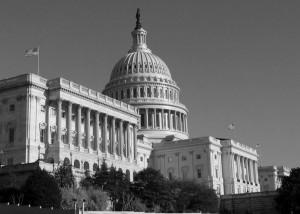The violent acts being committed by the Sunni-Islam extremist group ISIS (Islamic State in Iraq and Syria) has prompted the United States and other nations take military action. ISIS, which has its base in Raqqa, Syria, has taken over large areas of Syria and Iraq. The group has declared this area to be the “Islamic State,” according to a CNN article. Its oppressive rule and interpretation of Islamic law has been ravaging civilians, including ethnic and Christian minorities. Video of public executions has been released on the internet as ISIS continues to tighten its grip in the Middle East.
 According to CNN, the beheadings of two American journalists was an impetus to the United States’ military intervention. The offensive has mostly included missile strikes by sea followed by air raids by bombers and fighter jets. According to the US military, training compounds, headquarters, storage facilities, supply trucks, and armed vehicles were hit in the initial strike on Tuesday September 23. The Pentagon also stated that some ISIS operatives were hit, but the number was not specified.
According to CNN, the beheadings of two American journalists was an impetus to the United States’ military intervention. The offensive has mostly included missile strikes by sea followed by air raids by bombers and fighter jets. According to the US military, training compounds, headquarters, storage facilities, supply trucks, and armed vehicles were hit in the initial strike on Tuesday September 23. The Pentagon also stated that some ISIS operatives were hit, but the number was not specified.
Other nations have joined the United States, including Saudi Arabia, the United Arab Emirates, Jordan, Bahrain, and Qatar. As stated by a Washington Post article, France has also lent its support to the offensive.
According to Army Gen. Ray Odierno, who was quoted in the Washington Post, there is a possibility that civilians may be at risk as ISIS moves from more open areas with visible targets to urban areas. “We’ll have to determine that, as we go forward, if we can sustain the level of preciseness that is necessary to limit civilian casualties,” he cautioned.
Another complication threatening progress in the fight against ISIS may arise. Though there has been much cooperation in the Arab world with the West on this matter, the fact that ISIS is technically a Sunni Muslim group may be problematic for some governments. As stated in a CNN article, some governments may face dissent from their people, and they disagree with Sunnis fighting against other Sunnis.
Furthermore, Syria has cited disregard of its sovereignty, according to the New York Times. The nation has complained that American military actions on its soil without its cooperation is a violation of sovereign rights. President Obama and other US officials, on the other hand, insist this is not the case. Civil war in Syria helped extremist movements like ISIS to take root and spread, and Obama contends that by striking only ISIS and not “Mr. Assad”, the United States is helping Syria, thus the nation’s sovereignty is still intact.
Recent action involved the US-led air strikes targeting ISIS positions in northeastern Syria while the Syrian government aimed at other insurgents near its capital, Damascus this past Saturday. Meanwhile, ISIS attacked a Kurdish village near the Turkish border, according to the New York Times. At roughly the same time, two car bombs were detonated in the Syrian city of Homs, killing at least 45 people, including 41 children. The group has not taken official responsibility for this, though it is likely that it is responsible because of their recently increased presence in Homs. This, among other issues, has caused even more civilians to flee to Turkey, joining more than 150,000 refugees already there, the New York Times reported.
Military officials, including General Odierno, have dismally predicted that this conflict could endure much longer than previously anticipated.


